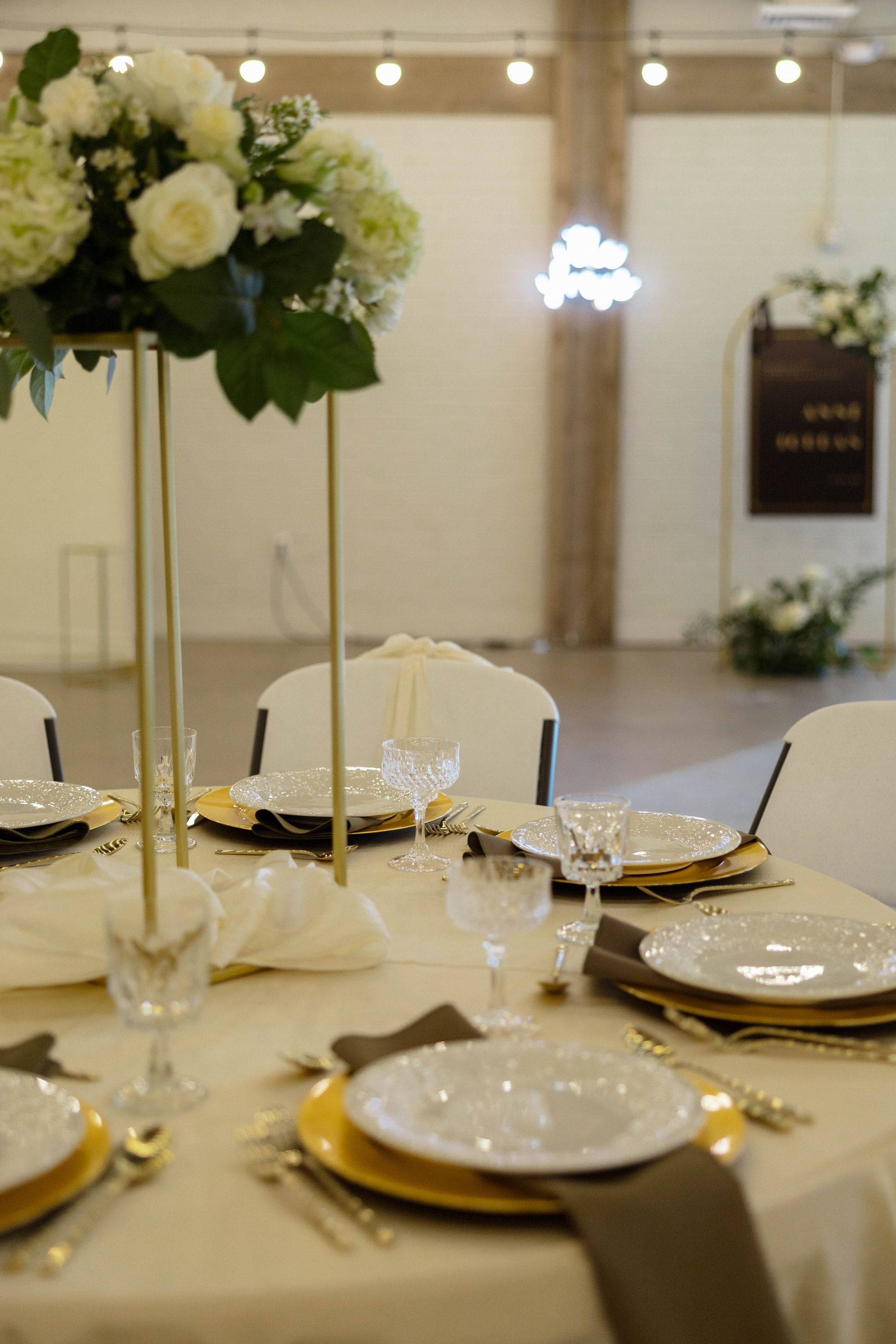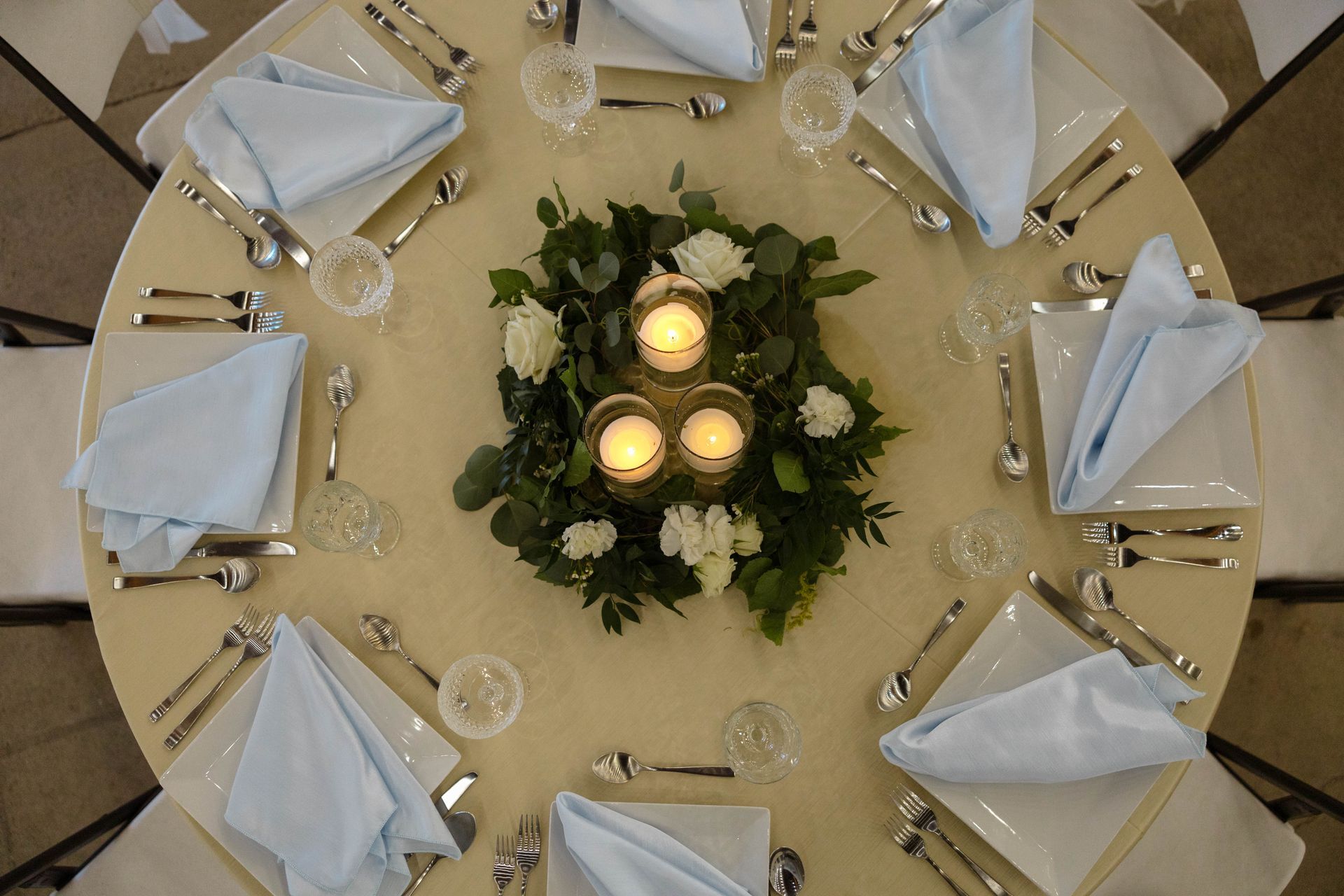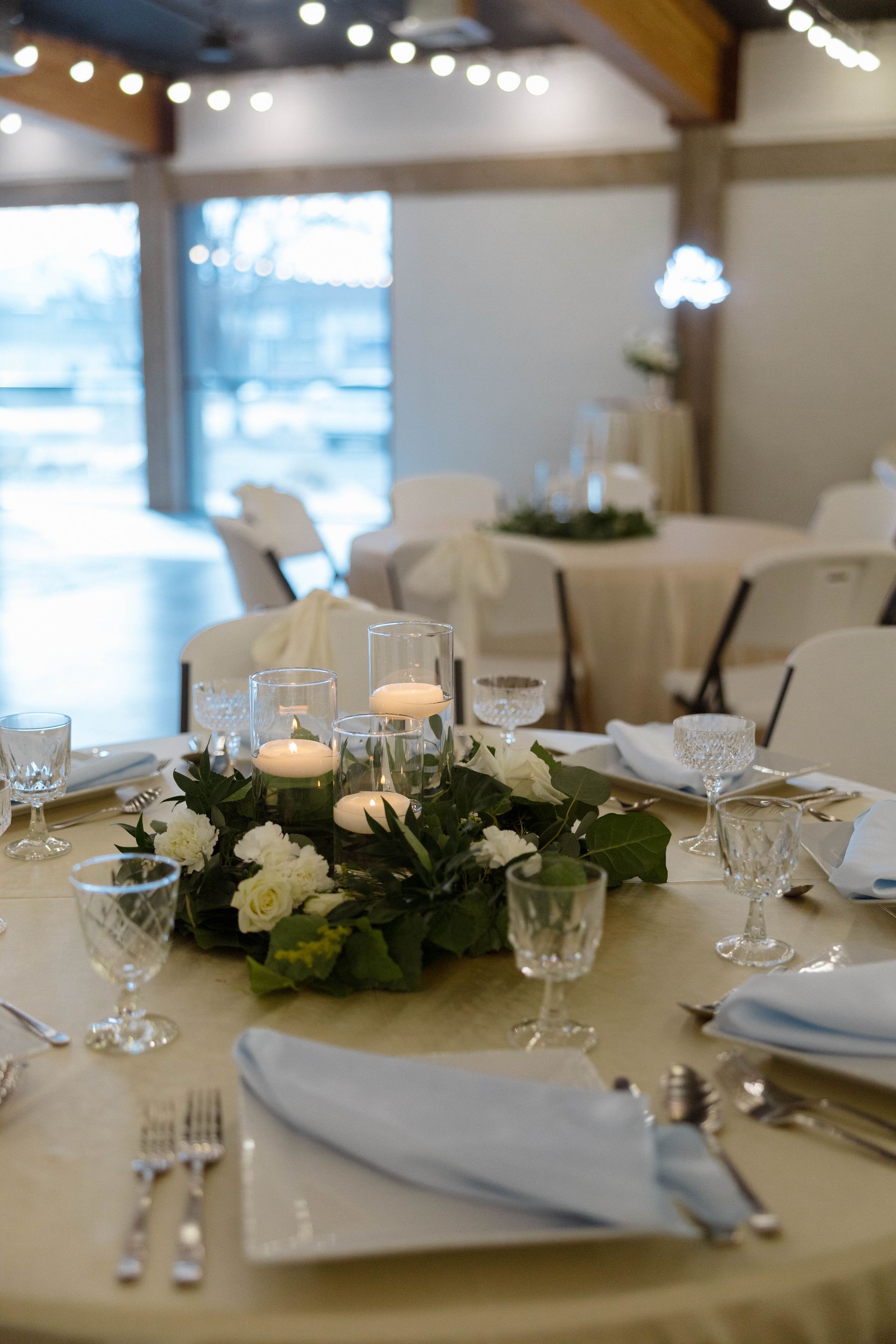The body content of your post goes here. To edit this text, click on it and delete this default text and start typing your own or paste your own from a different source.
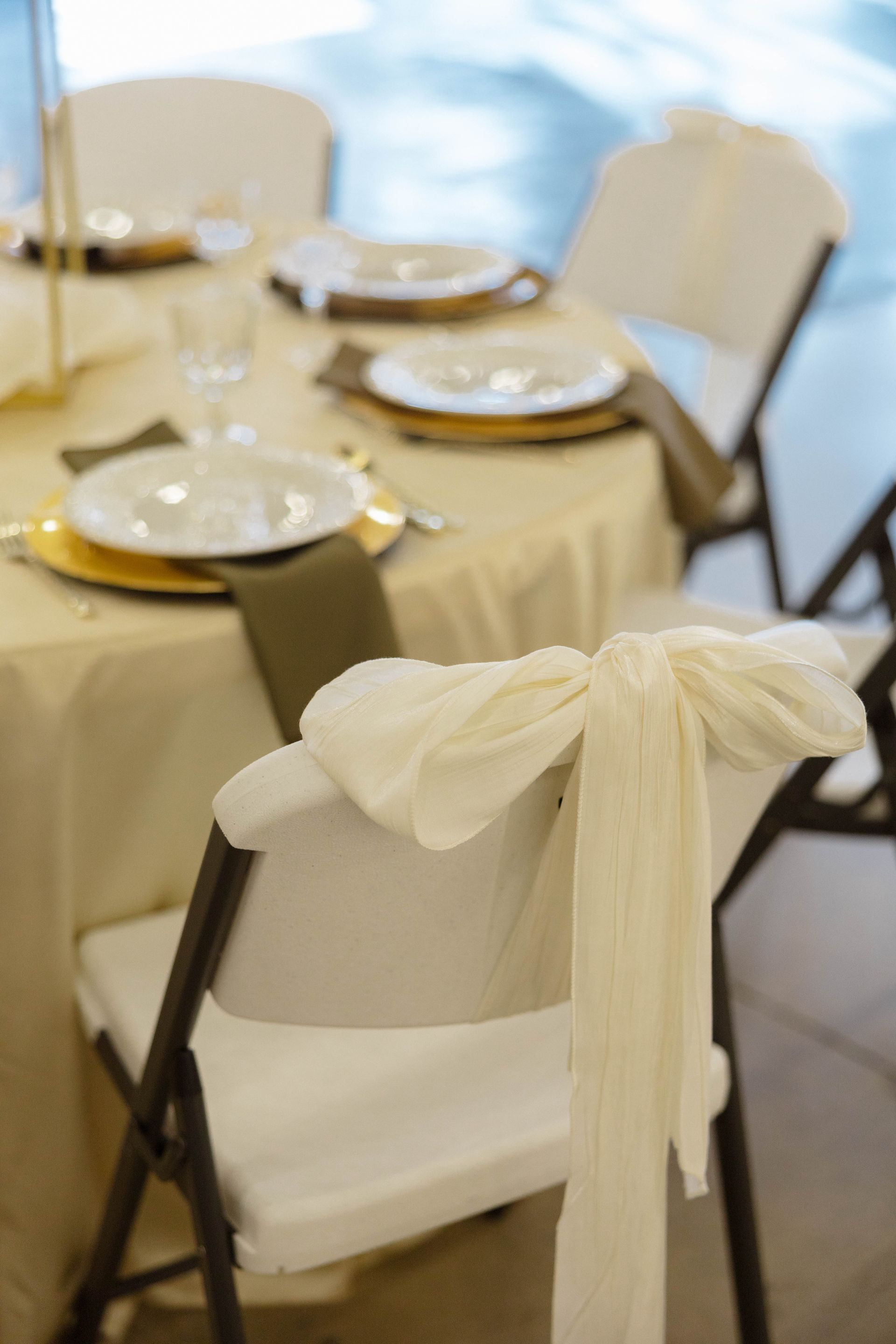
By Kara Church
•
April 2, 2025
Best Wedding Planning Hacks You’ll Wish You Knew Sooner Planning a wedding is an exciting journey, but it can also be overwhelming with so many details to manage. Whether you’re months away from the big day or just starting the process, these wedding planning hacks will help you save time, reduce stress, and make the most of your budget. 1. Choose an All-in-One Venue One of the easiest ways to simplify wedding planning is by choosing a versatile venue that accommodates both the ceremony and reception. An indoor venue eliminates weather concerns, offers built-in amenities, and allows for custom décor to match your vision . Plus, it saves time on transportation and logistics! 2. Create a Separate Email for Wedding Planning Stay organized by setting up a dedicated email address just for wedding communications. This keeps vendor quotes, contracts, and RSVPs in one place, making it easy to find important details when you need them. 3. Schedule Your Wedding on a Weekday or Off-Season Want to cut costs without sacrificing quality? Many venues and vendors offer discounts for weekday weddings or off-season dates . This can save you thousands while still securing your dream location. 4. Use a Wedding Website for RSVPs & Info Skip the hassle of collecting paper RSVPs and create a wedding website where guests can RSVP online. Include all event details, from the schedule to venue directions, and even a FAQ section to answer common questions. 5. Prioritize What Matters Most Before booking vendors, sit down with your partner and identify the top three aspects of your wedding that matter most—whether it’s food, photography, entertainment, or décor. Allocate more of your budget toward these priorities and trim expenses in areas that aren’t as important . 6. Book Vendors Early & Ask About Bundled Packages Venues, photographers, florists, and caterers book up quickly—especially during peak wedding season. Secure your key vendors early and ask about package deals that include multiple services (like a venue with catering and décor options) to save money and simplify planning. 7. Repurpose Décor from Ceremony to Reception Maximize your wedding budget by reusing décor elements . Ceremony flowers can be repurposed for reception centerpieces, and aisle decorations can double as table accents. This trick saves money and reduces waste . 8. Create a Wedding Day Emergency Kit Be prepared for the unexpected with a wedding day emergency kit that includes essentials like safety pins, stain remover, a sewing kit, extra makeup, and pain relievers. Having these on hand prevents small mishaps from turning into big stressors. 9. Design a Timeline with Buffer Time A well-structured wedding day timeline keeps everything running smoothly. Add extra buffer time between key moments like hair and makeup, travel time, and vendor setup to avoid feeling rushed. 10. Rent Instead of Buying From décor and tableware to tuxedos and furniture, renting can be a budget-friendly and hassle-free alternative to buying. Check with your venue—many include tables, chairs, and décor options as part of their rental packages! Final Thoughts Wedding planning doesn’t have to be overwhelming. With these time-saving and budget-friendly hacks , you can stay organized, stress less, and fully enjoy your special day . By choosing a well-equipped venue, streamlining logistics, and prioritizing what matters most , you’ll create a beautiful and memorable wedding without unnecessary headaches.

By Kara Church
•
April 1, 2025
How to Plan a Themed Event That Wows Your Guests A themed event is a fantastic way to create an unforgettable experience for your guests. Whether you’re planning a corporate gala, a milestone birthday, or a community celebration, a well-executed theme can set the tone and bring the event to life. Here’s how to plan a themed event that wows your guests from start to finish. 1. Choose the Perfect Theme Selecting the right theme is the foundation of your event. Consider: The occasion – Is it a wedding, holiday party, or corporate event? Your audience – Will the guests appreciate an elegant black-tie affair or a fun, playful atmosphere? Seasonal influences – A winter wonderland theme is great for the holidays, while a tropical luau fits summer celebrations. Popular themes include: Great Gatsby/1920s Glam – A vintage, elegant affair with flapper dresses and jazz music. Hollywood Red Carpet – A glitzy night with photo ops and a touch of celebrity glamour. Masquerade Ball – Mystery, drama, and elegance with ornate masks and candlelit decor. Casino Night – A lively event with card games, slot machines, and Vegas-style entertainment. 2. Design the Perfect Atmosphere Once you’ve chosen a theme, bring it to life through décor, lighting, and table settings. Backdrops & Decorations – Use themed props, banners, and centerpieces to create a fully immersive experience. Bistro Lighting & Special Effects – Dimmed lighting, fairy lights, or color-changing LEDs can set the mood. Customized Signage – Personalize welcome signs, table numbers, or menus to match the theme. 3. Dress Code & Invitations Encourage guests to participate by incorporating the theme into their attire. Creative invitations – Digital or printed invitations should reflect the theme’s style and color scheme. Suggested dress code – Let guests know what to wear, whether it’s formal attire, vintage looks, or costumes. Themed accessories – Provide fun props like masquerade masks, cowboy hats, or floral leis upon arrival. 4. Themed Food & Drinks Enhance the theme with a menu that fits the occasion. Customized cocktails – Name drinks after elements of the theme (e.g., “Roaring 20s Martini” or “Tropical Sunset”). Themed catering – Italian, Mexican, or Asian cuisine can match cultural themes. Decorative desserts – Cupcakes, cookies, or cakes that reflect the color scheme or event concept. 5. Entertainment & Activities Make the event more interactive with entertainment that enhances the theme. Live music or DJs – Jazz bands for Gatsby nights, mariachi for a fiesta, or a retro DJ for an ‘80s party. Photo booths & props – Create a dedicated photo area with fun backdrops and theme-related props. Games & interactive elements – Casino tables, trivia challenges, or scavenger hunts that fit the theme. 6. Party Favors & Keepsakes Send guests home with a reminder of the amazing time they had. Customized party favors – Mini champagne bottles, themed keychains, or personalized mugs. Photo souvenirs – Instant prints from the photo booth with the event name and date. Branded giveaways – Great for corporate events to reinforce brand recognition. 7. Seamless Execution & Final Touches Event timeline – Ensure smooth transitions between different parts of the event. Coordination with vendors – Work with caterers, entertainers, and decorators to bring the theme to life. Venue layout – Arrange seating, stages, and dance floors strategically to optimize the experience. Make Your Themed Event Unforgettable A well-planned themed event transforms an ordinary gathering into an extraordinary experience. By choosing the right theme, curating the perfect atmosphere, and incorporating immersive details, you can create an event that guests will talk about long after it ends. Start planning today and bring your vision to life!
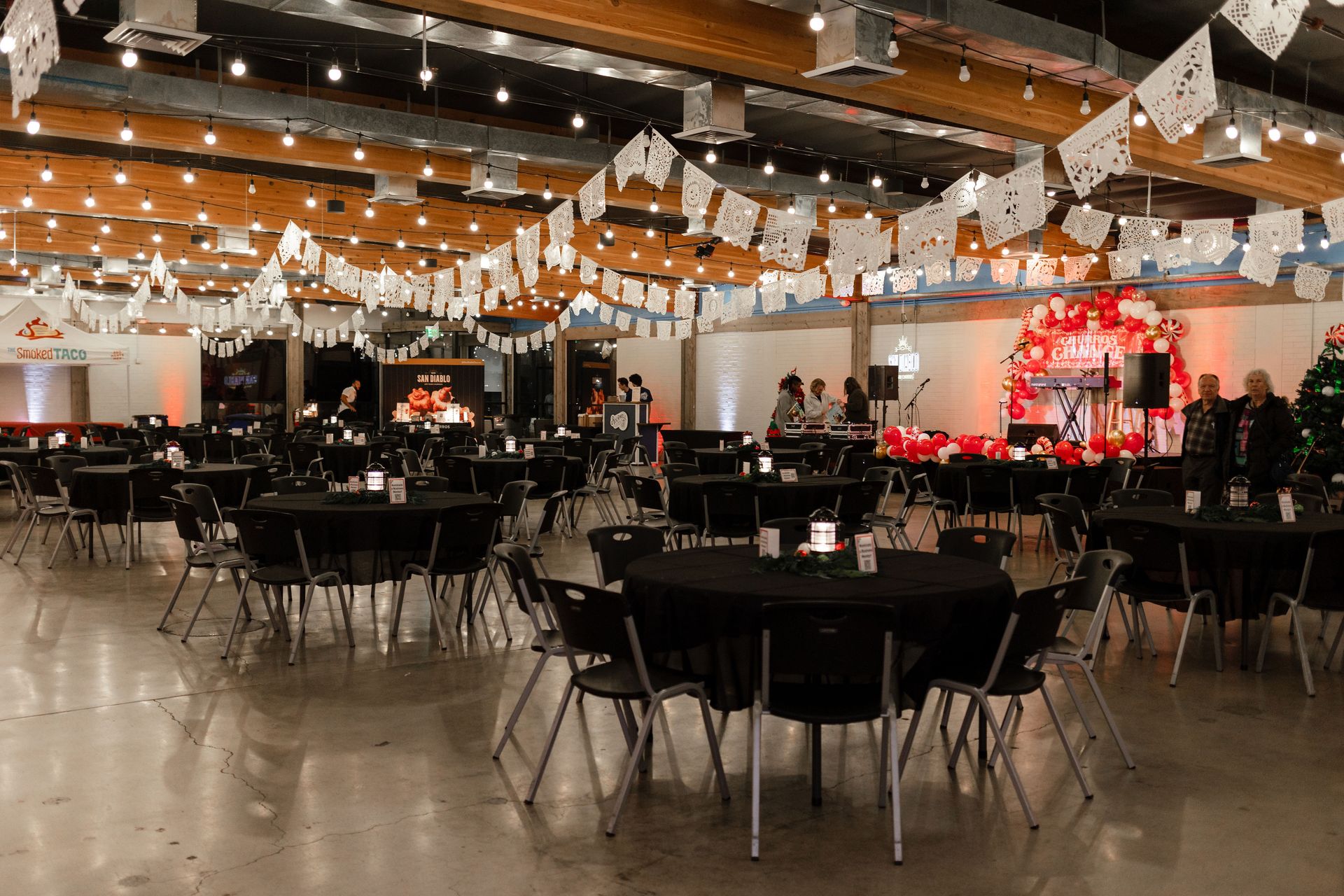
April 1, 2025
How to Host a Successful Business Seminar Business seminars bring professionals together to learn, network, and grow. Whether you're planning your first seminar or looking to improve your next one, hosting a successful event requires careful planning and attention to detail. From selecting the right venue to engaging your audience, every element plays a crucial role in creating a memorable experience. Hosting a successful business seminar requires strategic planning across several key areas: defining clear objectives, selecting an appropriate venue, creating valuable content, managing logistics efficiently, promoting effectively, and following up with attendees afterward. By focusing on these core elements and paying attention to attendee experience, you can create an event that delivers real value and achieves your business goals. In this comprehensive guide, we'll walk through the essential steps to plan and execute a business seminar that impresses attendees and delivers meaningful results. Whether you're aiming to educate clients, build your brand, or generate leads, these practical tips will help ensure your next business seminar stands out for all the right reasons. Define Your Seminar's Purpose and Goals Every good seminar starts with a clear purpose. Before you plan anything else, decide what you want to achieve. Ask yourself why you are holding this seminar. Do you want to teach new skills? Share information about your industry? Build your network? Promote a new product? Your answer shapes everything that follows. Set measurable goals for your seminar. Maybe you want 100 people to attend. Or you hope to get 20 new client leads. Perhaps you aim for 90% positive feedback. Having clear goals helps you know if your seminar succeeds. Choose the Right Venue Your venue sets the tone for your whole seminar. Look for a place that matches the feeling you want to create. A good venue needs several things: Enough space for all your guests to sit comfortably Good sound so everyone can hear speakers The right technology for presentations Easy parking or access to public transportation Proper heating or cooling Visit places in person before you decide. Check how the room looks and sounds. Make sure there are enough bathrooms and that the space works for people with disabilities. Create Valuable and Engaging Content People come to seminars to learn something useful. The knowledge you share must be worth their time. Plan talks that solve real problems your audience faces. Focus on things they can use right away. Mix different types of learning like lectures, discussions, and hands-on activities. Choose speakers who know their subjects well and can talk in an interesting way. The best speakers tell stories, use examples, and connect with the audience. If you will speak, practice until you feel comfortable. Develop a Strong Agenda A well-planned schedule keeps your seminar moving smoothly. Create a timeline that makes sense. Start with welcome and introductions. Put the most important topics early when people are most alert. Add breaks so people can rest, network, and check their messages. Give each activity enough time, but not too much. When things run too long, people lose interest. Share the agenda ahead of time so attendees know what to expect. Interactive Elements to Consider People learn better when they take part in activities. Add ways for attendees to get involved. Try these interactive elements: Question and answer sessions after talks Small group discussions about key topics Hands-on workshops where people practice new skills Live polls or surveys using mobile phones Team challenges related to your topic These activities help people remember what they learn. They also make your seminar more fun and help attendees meet each other. Handle Logistics Efficiently Good planning behind the scenes makes your seminar run smoothly. Pay attention to all the details. Create a master checklist of everything you need to do before, during, and after the event. Include items like ordering food, setting up registration, testing equipment, and preparing handouts. Assign specific tasks to team members. Make sure everyone knows their responsibilities. Check in regularly to make sure things are on track. Registration and Check-in Process Make it easy for people to sign up and arrive at your seminar. A smooth start sets the right tone. Use online registration that works well on both computers and phones. Ask only for information you really need. Send clear confirmation messages with all important details. On seminar day, have enough staff at the check-in table. Prepare name tags ahead of time. Consider using technology like QR codes to speed up the process. Technical Setup and Testing Technology problems can ruin a seminar quickly. Test everything before your guests arrive. Check all equipment the day before: Projectors and screens Microphones and speakers Internet connection Lighting Recording equipment if you plan to record Have backup plans ready. Bring extra cables, batteries, and even a spare laptop. Know who to call if something breaks. Test everything again early on the day of your seminar. Promote Your Seminar Effectively Even the best seminar needs good promotion to attract attendees. Start marketing early and use many channels. Create a compelling description of your seminar. Explain clearly what people will learn and why it matters to them. Focus on the benefits they will get from attending. Use different ways to spread the word: Email invitations to your contact list Posts on social media Announcements in industry groups Paid online ads Personal invitations to key people Send reminders as the date gets closer. Share exciting previews of what attendees will experience. Leveraging Social Media and Email Social media and email can reach many potential attendees quickly and cheaply. For social media: Create a hashtag for your seminar Share speaker profiles and topics Post countdown reminders Consider making short video previews Ask partners and speakers to share with their followers For email marketing: Send a first announcement at least 6-8 weeks before Include all important details like date, time, place, topics, and cost Send reminder emails 2 weeks, 1 week, and 1 day before Make your subject lines interesting so people open your emails Both methods work best when messages are short, clear, and show the value of attending. Provide Outstanding Hospitality How you treat attendees affects how they feel about your whole seminar. Make comfort a priority. Offer good food and drinks throughout the day. Hungry people cannot focus well. Have coffee, water, and snacks available during breaks. Provide a good lunch that works for different diets. Pay attention to room temperature, comfortable chairs, and good lighting. Small things like having enough power outlets for charging phones can make a big difference. Encourage Networking Opportunities Many people attend seminars partly to meet others. Help them connect in meaningful ways. Plan specific times for networking. This could be during breaks, at lunch, or at a reception after the main event. Create activities that help people talk to each other. Try these networking ideas: Ice-breaker activities at the beginning Assigned seating that mixes people from different companies Networking bingo or scavenger hunts Structured speed networking sessions A social event like a dinner or cocktail hour Good connections made at your seminar add value beyond the content you present. Gather Feedback and Follow Up Learning what worked and what didn't helps you improve future seminars. Ask attendees for their thoughts. Create a short survey that asks about different parts of your seminar. Include questions about the content, speakers, venue, and organization. Leave space for open comments too. Send the survey right after the seminar when memories are fresh. Offer a small incentive like a useful download to encourage people to respond. Post-Event Communication Stay in touch with attendees after the seminar ends. This builds relationships and extends the value of your event. Within a week, send a thank-you email. Include: Appreciation for attending Any promised materials or slides Photos or recordings from the event Next steps or ways to learn more Information about future seminars This follow-up reminds people of what they learned and keeps your connection strong. Host Your Next Business Seminar at The Boulevard Planning a business seminar in Provo, Utah? The Boulevard offers the perfect setting for professional events of all sizes. Their elegant spaces and attentive staff create an atmosphere where ideas can flourish and connections can form. The Boulevard specializes in a variety of events beyond business seminars, including wedding receptions, corporate events, private parties, birthday celebrations, charity galas, product launches, and graduation parties. Their versatile spaces can be customized to match your specific seminar needs, whether you're hosting an intimate workshop or a large industry conference. Their professional team understands what makes business events successful. From state-of-the-art audiovisual equipment to customizable catering options, every detail is handled with precision. Their central Provo location offers convenient access for local and out-of-town attendees alike. When you're ready to plan your next business seminar, contact The Boulevard to schedule a tour and consultation. Their event specialists will work closely with you to create a seamless experience that impresses your attendees and achieves your business objectives. With their expertise supporting your vision, your next business seminar is sure to be a memorable success.
Contact Us
Thank you for contacting us.
We will get back to you as soon as possible.
We will get back to you as soon as possible.
Oops, there was an error sending your message.
Please try again later.
Please try again later.
Get in Touch
Contact Information
Address:
1555 Freedom Blvd 200 W Provo, UT, USA

